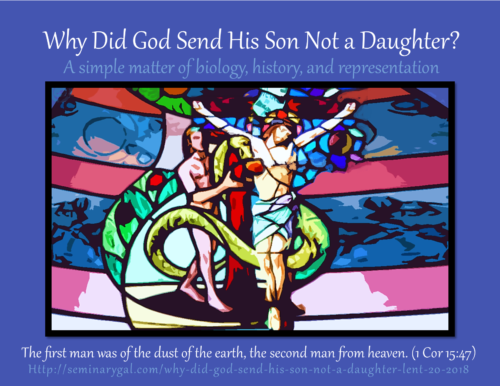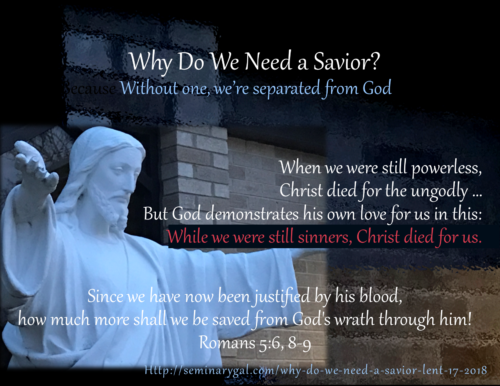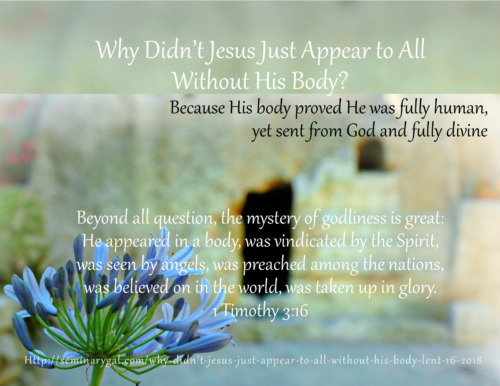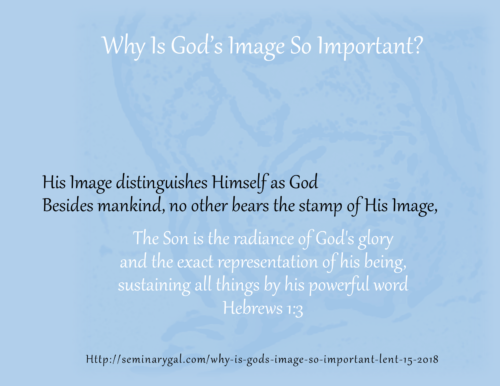What does following have to do with faith? Well, what is following but one person acting upon a decision to go in the same direction as the leader? A Christian, really, is nothing but a Christ follower in the great tradition of the earliest disciples.
Matthew 4:18 As Jesus was walking beside the Sea of Galilee, he saw two brothers, Simon called Peter and his brother Andrew. They were casting a net into the lake, for they were fishermen. 19 “Come, follow me,” Jesus said, “and I will make you fishers of men.” 20 At once they left their nets and followed him.
Faith. It’s as easy as following.
The movie Life of Pi which we’ve been using for Lent 2018 devotionals shifts today when instead of “Why?” Pi asks, “Why not?” Pi’s father had challenged his mother about Pi’s religious sampling saying, “No Gita, [Pi’s brother] Ravi has a point, no? You cannot follow three different religions at the same time, Piscine.” The young Pi asks, “Why not?” to which his father explains,
Because believing in everything at the same time is the same as not believing in anything at all.”
 ***
***
The action of following makes it abundantly clear: We cannot come to a fork in the road and take it. There’s a point of decision, a choice. To go forward or back, to the left or the right, up or down. To follow one way or another. No one can follow all directions simultaneously. At some point we believe in nothing or all others must fall away, leave one.
Food for thought:
- In what ways do Christians try to follow the world’s ways and Christ’s way at the same time? What causes them to do it?
- Ponder ideas of syncretism and assimilation. If three major monotheistic religions claim the only One True God, how does COEXIST fail every time? Why does it fail?
- This idea of choosing which way to follow goes way back to the early days of the chosen people. Deuteronomy 30:15 See, I set before you today life and prosperity, death and destruction. 16 For I command you today to love the LORD your God, to walk in his ways, and to keep his commands, decrees and laws; then you will live and increase, and the LORD your God will bless you in the land you are entering to possess. 17 But if your heart turns away and you are not obedient, and if you are drawn away to bow down to other gods and worship them, 18 I declare to you this day that you will certainly be destroyed. You will not live long in the land you are crossing the Jordan to enter and possess. 19 This day I call heaven and earth as witnesses against you that I have set before you life and death, blessings and curses. Now choose life, so that you and your children may live 20 and that you may love the LORD your God, listen to his voice, and hold fast to him. For the LORD is your life, and he will give you many years in the land he swore to give to your fathers, Abraham, Isaac and Jacob.
- Joshua 24:15 But if serving the LORD seems undesirable to you, then choose for yourselves this day whom you will serve, whether the gods your forefathers served beyond the River, or the gods of the Amorites, in whose land you are living. But as for me and my household, we will serve the LORD.”
- Who and what do you follow?
Join me next time for “Why Can’t God Give Us a Sign to Prove Himself?”
==
For Lent 2018, we’ll explore the questions of Pi and Chi (the Greek letter beginning the word Christos, which means Christ, Messiah, the Anointed One). We’ll ask and answer the question “Why?” as we discover the uniqueness of Jesus Christ. Join me for the 40 days of Lent which began February 14, 2018 by liking Seminary Gal on Facebook or having these devotionals sent to your email box which you can do via the sign-up on my Home page. Thank you for blessing me with this opportunity to study together the Word of God.
===
Acknowledging that former years’ devotional series remain popular:
- Lent 2013 looked at The Letter to the Romans: Paul’s Masterpiece to reclaim foundations of our Christian heritage and began February 13, 2013.
- A very special and ever popular offering was Lent 2014’s Be Still and Know that I AM God which can be obtained through the archives beginning in March 2014.
- Lent 2015 began on February 18, 2015 with a series entitled With Christ in the Upper Room: Final Preparations. We explored what is often called “The Upper Room Discourse” found in John chapters 13-17.
- ReKindle, the Lent 2016 series, began on February 10, 2016 and encouraged us to rekindle our spiritual lives.
- Light: There’s Nothing Like It was the 2017 Lent series and explored this metaphor often used to portray Christ. It is archived beginning March 1, 2017.

 ***
*** ***
*** Too much to dream that the Catholic priest in the Life of Pi would state his view as clearly as the Apostle Paul:
Too much to dream that the Catholic priest in the Life of Pi would state his view as clearly as the Apostle Paul:  Hosea 14:4 “I will heal their waywardness and love them freely, for my anger has turned away from them. 5 I will be like the dew to Israel; he will blossom like a lily. Like a cedar of Lebanon he will send down his roots; 6 his young shoots will grow. His splendor will be like an olive tree, his fragrance like a cedar of Lebanon. 7 Men will dwell again in his shade. He will flourish like the grain. He will blossom like a vine, and his fame will be like the wine from Lebanon… 9 Who is wise? He will realize these things. Who is discerning? He will understand them. The ways of the LORD are right; the righteous walk in them.”
Hosea 14:4 “I will heal their waywardness and love them freely, for my anger has turned away from them. 5 I will be like the dew to Israel; he will blossom like a lily. Like a cedar of Lebanon he will send down his roots; 6 his young shoots will grow. His splendor will be like an olive tree, his fragrance like a cedar of Lebanon. 7 Men will dwell again in his shade. He will flourish like the grain. He will blossom like a vine, and his fame will be like the wine from Lebanon… 9 Who is wise? He will realize these things. Who is discerning? He will understand them. The ways of the LORD are right; the righteous walk in them.” And yet even in His body, Jesus was remarkable because of what He revealed to us about the Father. Oh, and the remarkable things He’d do! Jesus answered Thomas’ and Philip’s inquiry in the most surprising way
And yet even in His body, Jesus was remarkable because of what He revealed to us about the Father. Oh, and the remarkable things He’d do! Jesus answered Thomas’ and Philip’s inquiry in the most surprising way ***
*** ***
*** ***
***